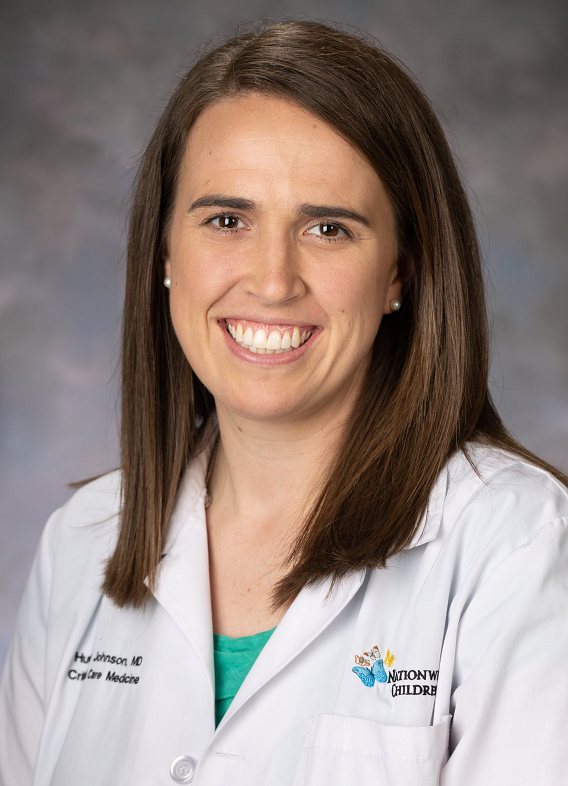O'Brien Wynkoop Lab
The field of pediatric global health research is at a critical point in time. After decades of improvements in child health, the decline in child mortality rates has slowed. In both 2020 and 2021, more than 5 million under-five deaths occurred globally. Those children living in sub-Saharan Africa are disproportionately affected, with 1 in 27 dying before their fifth birthday, representing 80% of all global pediatric deaths. Critical research questions in the field that may improve these outcomes remain unanswered. The O'Brien Wynkoop Lab exists to answer these knowledge gaps.
Current Projects
Brain injury due to cerebral malaria (CM) contributes significantly to childhood death and disability in sub-Saharan Africa, but multiple therapeutic trails have failed to demonstrate approaches that improve outcomes. Our recent work has highlighted that, in addition to commonly accepted mechanisms of neurologic injury, abnormal cerebral blood flow and dysregulated metabolism are ubiquitous. This project aims to identify putative metabolites to flow and metabolism derangements in CM, and through neuroimaging and neurodevelopmental follow up testing, establish these factors as novel mechanisms of neurologic injury in this disease, a necessary step to inform future interventional trials.
Cerebral malaria (CM), even with effective anti-malarial drugs, results in >450,000 deaths annually, with pediatric case fatality rates ranging from 15-30%. This equates to >1300 dead children on any given day. Long-term neurologic sequelae are identified in 30-50% of survivors. The neuropathogenesis of CM is unclear and under-investigated, but an improved understanding is necessary to develop efficacious therapies that improve outcomes.
We have, in two different populations of African children with CM, identified five distinct patterns of abnormal cerebral blood flow (CBF) using transcranial doppler ultrasound (TCD). We have also determined that multiple different types of disrupted flow-metabolism coupling and cerebral metabolic dysfunction (e.g., luxury perfusion, misery perfusion, ischemia, mitochondrial dysfunction) occur in 85% of patients with CM.
We hypothesize that in children with CM, due to parasite and/or host factors, altered bioavailability of various vasoactive peptides results in altered cerebrovascular tone/cerebral blood flow, flow metabolism uncoupling, and cerebral metabolic dysfunction, with different combinations of abnormalities inherently associated with differing kinds and risk of neurologic injury. Using non-targeted metabolomics, we will determine putative peptides contributing to the different categories of abnormal CBF and metabolism. These peptides may then act as biomarkers of underlying mechanisms of injury or as therapeutic targets in future trials.
This project will also establish altered CBF and metabolism as mechanistic contributors to neurologic injury in CM for the first time. We will do this by examining neuroanatomic correlates and neurocognitive outcomes for each CBF/metabolism grouping, which we hypothesize will be significantly different between groups. While this work may not be as innovative as is typical of other NIH grants, the state of clinical cerebral malaria research is such that basic mechanisms of disease, and their causative factors must be identified more completely before further work into novel treatment approaches can even be considered. This proposal will fill significant gaps in our understanding of mechanistic contributors to neurologic injury in children with CM thereby opening the door for future interventional clinical trials.
Funding: 1R56NS132781
Brain injury due to stroke from sickle cell disease or neuroinfection significantly contributes to childhood death and disability in sub-Saharan Africa. Improving access to and expertise in the use of important diagnostic and monitoring tools is necessary to improve outcomes. Transcranial doppler ultrasound (TCD) is one such technology that, through the formation of the proposed Centers of Excellence, will become more widely available to battle sickle cell disease, meningitis, and cerebral malaria in children in Africa.
The goal of this project is to establish and maintain six research centers in three countries in Africa that can perform neuroimaging with transcranial doppler ultrasound.
Funding: R21HD106252
Despite treatment with highly effective antimalarial drugs, malaria annually claims the lives of over half a million children under 5-years of age in sub-Saharan Africa. Cerebral malaria (CM), defined as Plasmodium falciparum infection with coma, is the severe malaria syndrome with the highest mortality. Studies in the CM mouse model suggest that a T cell-mediated response underlies CM pathology, opening a new target for therapy in humans. This trial aims to establish the preliminary safety of one such novel therapy, the glutamine antagonist 6-diazo-5-oxo-L-norleucine (DON).
In this phase I/IIa dose-escalation clinical trial, a single dose of intravenous (IV) DON is administered to three participants groups—healthy adults and adults with uncomplicated malaria, then pediatric participants with CM—to primarily assess safety. The secondary objective of this trial is to assess pharmacokinetics of DON over a range of doses. The open-label adult portion of the trial enrolls 40 healthy adults concurrently with 40 adults with uncomplicated malaria. Cohorts of 10 participants receive a single IV dose of DON with doses escalating between cohorts from 0.1 mg/kg, 1.0 mg/kg, 5.0 mg/kg, to 10 mg/kg. Following subsequent safety review, a randomized, double-blind, and placebo-controlled pediatric study enrolls 72 participants aged 6 months to 14 years with CM. The pediatric portion of the study minimally spans three malaria seasons including a planned interim analysis after 50% of pediatric enrollments. The first half of pediatric participants receive DON 0.1 mg/kg, 1.0 mg/kg, or placebo. Dosing for the second half of pediatric participants is informed by the safety and preliminary efficacy results of those previously enrolled. The pediatric portion of the study has an exploratory outcome evaluating the preliminary efficacy of DON. Efficacy is assessed by diagnostics predictive of CM outcome: electroencephalography (EEG), magnetic resonance imaging (MRI), and transcranial doppler (TCD), measured before and after DON administration. All participants with malaria receive standard of care antimalarials in accordance with local guidelines, regardless of study drug dose group.
Funding: U01AI155300
The major goal of this project is to determine the frequency and contributors to multiorgan dysfunction in children with severe malarial disease.
We aim to develop a MODS scoring system using clinical criteria feasible for low resource settings that will predict mortality in children with severe malaria. We are also determining mechanisms of MODS in this population that will allow us to individualize therapies for children to prevent or treat this complication.
Inside the O'Brien Wynkoop Lab
Our Research
A major focus of the O’Brien Wynkoop Lab is on severe malaria, one of the leading causes of pediatric death and long-term morbidity on the African continent. Studies to date focus on determining the pathogenesis of multiple organ dysfunction and on furthering our understanding of the mechanisms of brain injury in severe malaria anemia and cerebral malaria. This work is necessary to develop efficacious adjunctive therapies that improve outcomes for the nearly 1,200 children that die of malaria globally each day.
Our Global Reach
Drs. O’Brien and Wynkoop conduct studies in medical research facilities at:
- Kalembe Lembe Children’s Hospital in the Democratic Republic of the Congo (DRC)
- Lodja District Referral Hospital in the DRC
- CME District Referral Hospital in Bunia in the DRC
- University Teaching Hospital in Lusaka, Zambia
- Chipata Central Hospital in Chipata, Zambia
- Queen Elizabeth Hospital/Blantyre Malaria Project in Blantyre, Malawi
Due to involvement in our work, all of these sites now have access to point of care ultrasound for the brain, lungs, heart and abdomen. Further, significant personnel and laboratory capacity building has been undertaken.
Featured Publications
- Multiple Organ Dysfunction Syndrome in Malawian Children with Cerebral Malaria
- Point-of-care Ultrasound to Assess Hemodynamic Contributors to Acute Kidney Injury in Pediatric Patients With Cerebral Malaria: A Pilot Study
- Mechanisms of Transcranial Doppler Ultrasound Phenotypes in Paediatric Cerebral Malaria Remain Elusive
- Multiple Organ Dysfunction Syndrome and Pediatric Logistic Organ Dysfunction-2 Score in Pediatric Cerebral Malaria
- Transcranial Doppler Ultrasonography Provides Insights into Neurovascular Changes in Children with Cerebral Malaria
Meet Our Team

Nicole F. O'Brien, MD
Principal Investigator
Nicole.OBrien@NationwideChildrens.org
Nicole F. O'Brien, MD, is a Critical Care physician at Nationwide Children's and a professor of Clinical Medicine for The Ohio State University College of Medicine. Dr. O'Brien earned her bachelor of science in biology at Ohio Northern University and attended medical school at the Medical College of Ohio. She completed her residency and pediatric critical care fellowship at the University of California, San Diego. Dr. O'Brien is a member of the Society of Critical Care Medicine, American Medical Association, American Academy of Pediatrics and Christian Medical and Dental Association.

Hunter Wynkoop, MD
Principal Investigator
Hunter.Wynkoop@NationwideChildrens.org
Hunter Wynkoop, MD, is a Critical Care Medicine physician at Nationwide Children’s Hospital and a principal investigator in the Center for Clinical and Translational Research at the Abigail Wexner Research Institute. She is an assistant professor of Pediatrics at The Ohio State University College of Medicine. Dr. Wynkoop is a graduate of Meredith College and attended medical school at The Brody School of Medicine at East Carolina University. She completed her combined residency in internal medicine and pediatrics at Vidant Medical Center in Greenville, North Carolina and her pediatric critical care medicine fellowship at Nationwide Children’s Hospital.



